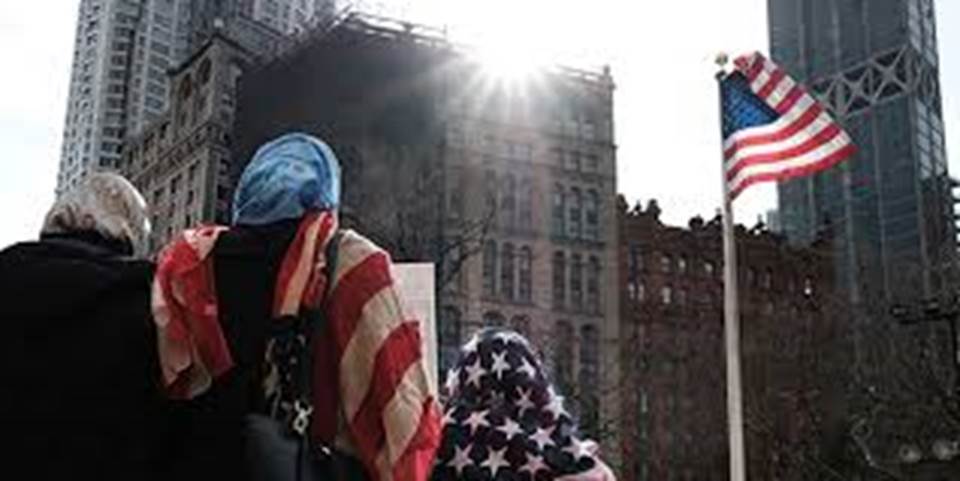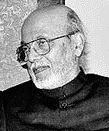

Pew Research Center
Expectations and Realities for Muslims in American Politics
By Professor Nazeer Ahmed
Concord, CA

It was the election year 2000. Representatives from a large number of Muslim organizations met, and after lengthy discussions, decided to endorse George W Bush, then Governor of Texas, as President. The meeting and the outcome were hailed as a watershed for American Muslims. It was the first time that some of the aspiring young (and not so young) leaders had met and agreed upon a single candidate. Enthusiasm overflowed. Hopes ran high that the Muslim vote would make a difference in the national elections.
If published estimates are correct, more than seventy percent of Muslims voted for Mr Bush in the election of 2000. When Mr Bush was elected, there was jubilation and some celebration. Expectations were high that the Muslim voice would at last be heard at the highest levels.
9/11 intervened, and the political landscape of America changed. In the wake of that defining moment, internal politics as well as international policies went through a manifest transformation. The Muslims and Arab Americans felt discriminated against. The initial enthusiasm evaporated. In its place a defensive attitude set in. Some Muslims felt betrayed by their own leadership.
In retrospect, the initial euphoria as well as the subsequent disappointment were both exaggerated. The ship of state sails to higher winds than the meager Muslim vote.
Politics is the art of making happen that which is possible. It is almost like existentialism applied to political affairs. A master politician has that inherent sixth sense to grasp the possibility of an event and maneuver his position to be on the winning side. That is why men and women of principle rarely make good politicians. Principles are eternal; politics is not.
There are men and women of vision who create history by the sheer power of their will. Politicians respond to change. Visionaries create the conditions of change. They create history. Politicians merely float with the currents of history. As concrete examples, Zulfiqar Ali Bhutto was a politician. Mohammed Ali Jinnah was a visionary.
Politics in America is a compendium of issues that revolve around the constitution and national interests. The issues keep changing and have changed over two hundred years. The institutions established by the constitution have endured.
On the international scene, the overarching goal of American foreign policy is to prevent the emergence of a power or a coalition of powers that can challenge the pre-eminent position of the United States. A similar goal animated the British Empire up until World War II, namely, maintenance of a balance of power in Europe so that none could challenge the pre-eminence of the British Empire. The two world wars were a direct result of the German challenge to this overriding British goal.
Muslims in America have neither the financial resources nor the votes to substantially influence national politics or foreign policy. They can only hope to bring about change working in cooperation with other interest groups. This may be a bitter pill to swallow but political health sometimes requires the consumption of bitter truth pills.
Let us look at the numbers first. Estimates vary, but it is commonly accepted wisdom that there are between three and six million Muslims in America today (June 2006)
Muslims have a penchant for exaggeration, a consequence perhaps of the tendency for hyperbole in languages such as Urdu, Farsi and Arabic. In the euphoria preceding 9/11, there were wild guesses as to the number of Muslims. I have heard at least one speech where the speaker claimed there were fourteen million Muslims in America! What wishful thinking! If one were to include only practicing Muslims, and judge the number by attendance at mosques around the country, the total is closer to three million than six million. That is barely one percent of the American population. This is not a significant presence except in isolated pockets clustered around large cities such as Detroit, Los Angeles, Houston and Chicago. Muslims come in different colors, different nationalities, have different ethnic origins and have inherited diverse historical experiences. Add to it the dogmatic discordance among Muslims and their dismal voting record. Many of them do not even bother to vote.
Then there is the question of the floating population. Prior to 9/11 there was a steady influx of Americans into Islam. That stream has now become a trickle. Verifiable statistics are absent but I personally know many Americans, black and white alike, who identified with Islam before 9/11 and have since walked away. The stories about how conversion has accelerated in the last three years are not substantiated by observation. .
There is also reverse osmosis. Many who came from Muslim families got co-opted into the American secular milieu and have lost all touch with Islamic practices. This phenomenon is not confined to Islam in America. People of other faiths, including Jewish, Christian, Hindu and Buddhist faiths, have also encountered the same patterns. When the loss from faith to secularism is factored in, the statistics look even more dismal.
What the wild exaggerations in numbers have done is to alarm a conservative section in America. Claims that Muslims were soon to overtake the Jewish population made some right wing elements perk up and take note. There is a saying in Japan that a nail that sticks out gets hammered down. The nail must be strong enough to withstand the blows of a hammer. Otherwise, it fractures. A community that sticks its neck out must have the resources to withstand the street heat that politics generates. Otherwise, life becomes extremely uncomfortable.
It will be a while before someone with a Muslim name gets elected to a major office in the United States. Some will try with disguised or anglicized nicknames. I remember when I contested in the primaries for US Congress from the 46th Congressional district of California in 1992, a Hispanic gentlemen frankly told me: “Dr Ahmed, you are probably the most qualified man. But it will be a while before an Ahmed or a Muhammed gets elected to Congress.”
Now, consider the issue of money in politics. Campaigns are awfully expensive. It may take close to a million dollars to run a successful campaign for a national office. Although a few Pakistanis and Arabs have been extremely successful as businessmen, most families are financially maxed out and the ability to raise money in the community is limited. Candidates, whether they are Republican or Democrat, are willing to attend luncheons and listen to your grievances if you promise them a substantial campaign donation or a major cache of votes. With a few local exceptions, Muslims cannot muster either.
The same hard facts apply to influencing the foreign policy of the United States. Whenever Muslims get together, the conversation descends very rapidly to a discussion of Palestine, Kashmir and Chechnya. The policies of the United States, as are the policies of all modern states, set by national interests. American Muslims face a host of issues at home that affect them directly without the need to engage in frustrated debates on foreign policy issues that they cannot influence.
These are the realities. Nonetheless, individual Muslims have entered the fray at the local and state levels and have enriched the political landscape. These stalwarts are the trendsetters, and they deserve our support and our good wishes.
The hard lessons of American politics are obvious. Get involved and stay involved despite the frustrations. Attend the local meetings of the Democratic or the Republican Party, as you choose. Time solidifies relationships and long-term political associations pay off. Build bridges with other communities based on shared values and shared concerns for specific issues. Avoid the Muslim label because the Muslim brand does not sell in America. Focus on local issues wherein you have a direct stake and which affect you directly. Influence local school boards towards quality education. Participate in business councils to foster a sense of entrepreneurship. Where there is a national issue such as discrimination against Muslims, constitutional rights of citizens, immigration or profiling of people of Middle Eastern/South Asian origin, work with established organizations such as the ACLU. Where there is a concentration of Muslims, do seek out the candidates of both major parties and brief them on your concerns as citizens. Stand up for justice even if it be against your own kind. And finally, learn the art of negotiation but do not compromise on principles.
(The author is Director, World Organization for Resource Development and Education, Washington, DC; Director, American Institute of Islamic History and Culture, CA; Member, State Knowledge Commission, Bangalore; and Chairman, Delixus Group)

